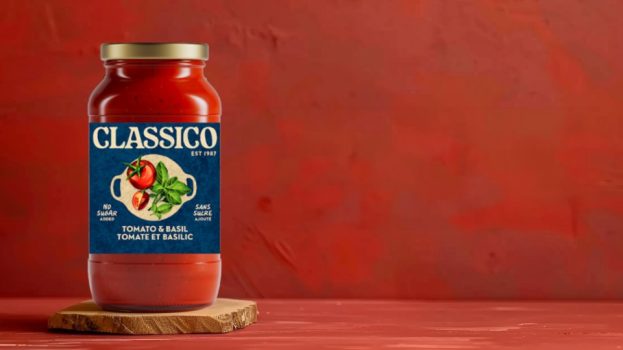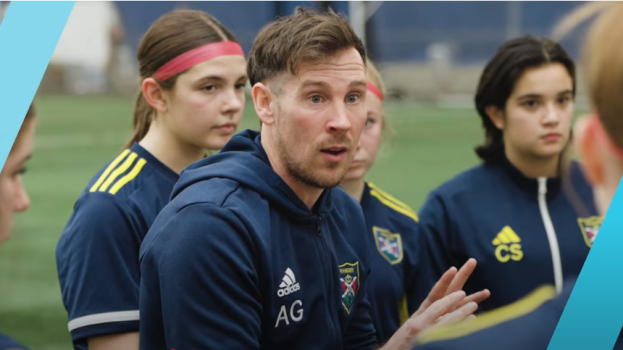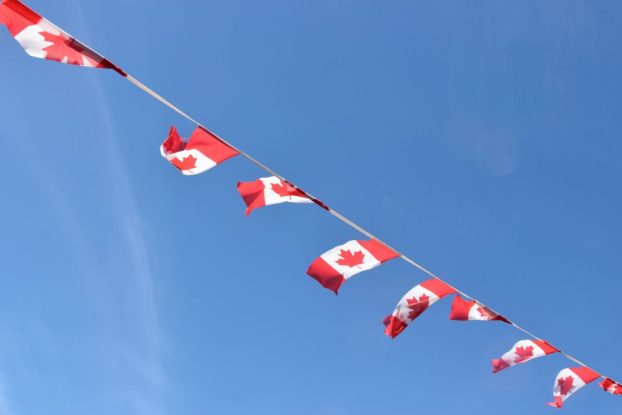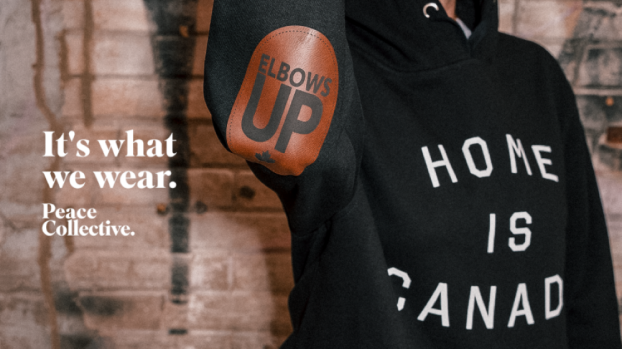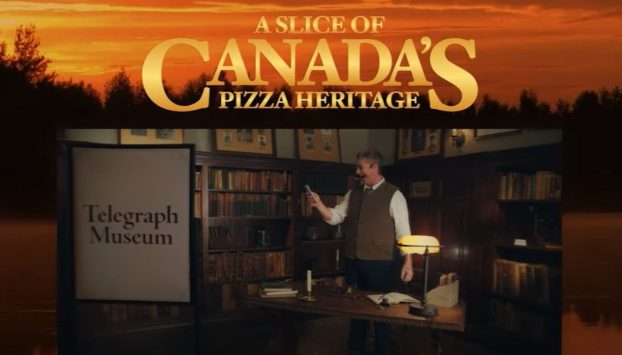So there will be a World Series after all. While the ugliest word in sports – strike – has been averted, this year, to put it lightly, has not been good for professional baseball, especially in Canada. The last six months have brought a number of dreadful truths to light, and because of this, the game’s image – strike or not – has no doubt been damaged.
Attendance and ratings are down. The International Olympic Committee is considering dropping baseball as an Olympic sport. Specialty channel The Score bought out the rest of its contract with Major League Baseball (MLB), so it won’t have to broadcast another season of games people aren’t watching. In three months, the 33-year history of the Montreal Expos could be reduced to a memory – a victim of the game’s apparent instability, even though the league made almost $3 billion in revenue last season. The Toronto Blue Jays, while barely hanging on, have seen their attendance drop since their miraculous years as World Champions. The team lost $50 million last year and is poised to lose more over the coming seasons.
All these nightmarish problems beg one colossal, loaded question: can baseball in Canada be saved?
‘I can’t really think of a more difficult challenge than making baseball a more attractive product,’ says Dom Caruso, president of agency Cossette Communication-Marketing in Toronto. ‘Marketing can do a lot, but it can work better when you have a good product. Baseball today isn’t [one].
‘I think baseball is counter-trend, in a world where we want a lot out of our entertainment. The thing not to do is to try to make it like basketball, which would be a real mistake because that would alienate its core fans. It should focus on what’s unique about the game, like its pace and the statistics.’
Many pundits have predicted the demise of the sport here in Canada, however the Jays are doing all they can to keep fans in their seats. Two years ago, the team introduced Family Packs (a family of four gets four tickets, four slices of pizza, four Cokes, plus a game program for just over $100). They’ve opened their distribution channels now that Rogers owns the team, allowing fans to purchase tickets at select Rogers Video stores. At Saturday games, kids get to announce the hitters.
There are value-added premiums – a staple of in-house pro sport promotion. Bobblehead dolls are distributed. Kids are given Blue Jays-branded lunchboxes on Sundays. But is this enough to maintain interest? Peter Cosentino, the Jays’ VP of marketing is cautiously optimistic.
‘A winning team and sold-out stadiums is what drives a team, but strong, focused marketing can help too. The off-season was very challenging – how can I sell season’s tickets when I don’t even know if Raul Mondesi will be there for the next season?’ he asks, referring to the club’s strategy (under the lead of new GM, J. P. Richardi) of dumping high-price talent in lieu of investing in younger, cheaper players at the beginning of promising careers. ‘So this year, it was very much about community. You can’t build equity out of instability so we wanted to make people feel like they’re a part of something.’
Cosentino says the team has firmly targeted youth as its top priority and test pilots like the Mello Yello Lounge are a good step forward. For five Fridays earlier in the summer, the team transformed one of the large boxes in the Toronto SkyDome’s 200-level into a kids-only zone. No parents were allowed. Televisions broadcasted the action, but there were also tons of comfy couches and a foosball table. The kids and teens who hung out in the lounge were given free drinks plus a CD sampler from Universal Music.
‘It was enormously successful – the kids hang out in the lounge and parents get some time alone in the seats,’ he says, adding that the effort will be rolled out on a larger scale next season because the lounge was packed every Friday. ‘The kids had a great time. They held ab contests, so you see all these teenage guys yanking up their shirts, showing who’s got best muscles. They loved it.’
Yet, despite a few bright spots, there’s a lingering fear that the Jays too might go the way of the Expos. We asked a panel of marketing pros for their suggestions on how to save the game in Canada.
Dan Scherk, CD, Bryant Fulton & Shee, Vancouver, B.C.
I think they need to find things that are more interesting to people who aren’t fans to get them more involved.
If you look at some of the ads that came out for the Seattle SuperSonics for basketball in years past, they were trying to talk to people who weren’t excited by certain aspects of the game. So they didn’t show any footage at all in their communications. It was like a documentary approach, where they just took a camcorder and followed around a basketball player from the team as he showed up at people’s houses. The idea was ‘the Sonics are coming to your home.’ The creative interpretation was that real Sonics are showing up at people’s homes to help them do laundry and such.
I think what worked there was to say that the Sonics were really a part of your community and it’s something you should get into because ‘we’re a town that’s behind this team.’
Baseball’s not a big, concrete jungle, inner-city, urban-type game. It’s always been really homespun, almost a down-country feel. So if they come up with an [ad] approach that reflected the gentle humour you associate with sitting around with a bunch of guys watching a baseball game, that might be effective.
Max Valiquette, president, Youthography, Toronto
and die-hard, broken-hearted Montreal Expos fan
First, I would recognize what its assets are. The big one is it’s more of a historical game than any other. It’s a game that tries to teach its history through the statistics. And there’s a hunt for records. The home-run record is definitely the sexiest record in major league sports, period. But I would really start pushing other records, pushing other players’ stats. In baseball, that’s captivating.
I would find a key nucleus of core players – maybe 15 of them – and market the hell out of them. I would pick players that are relatively young, leaders in the power categories, like homeruns, or strikeouts, but also have something that distinguishes them in their personality that makes them more accessible. Basketball has done a terrific job of letting you know that it’s Allen Iverson if you like to be on the edgier side of things, it’s Vince Carter if you like the exact opposite. Then you’ve got Shaq, Kobe and other players too.
I think baseball should do the same thing: take A-Rod, take Derek Jeter, Pedro Martinez, Nomar Garciaparra, and five or 10 [other] players and get them together – on magazine covers, at photo ops on TV as often as possible. Use them as the ambassadors for the game.
Also, I would look for more youthful properties to get involved with. The Argos are making a real effort of bringing in Shaggy and Tony Hawk – the Jays have a guy on stilts in front of the SkyDome. It’s hard, because theirs is a less kinetic game, and so it doesn’t necessarily lend itself to the high intensity promotions of football, basketball and hockey. But there has to be a way for pro baseball to feel younger, because right now it doesn’t do a particularly good job of that.
Let’s say it’s determined that Eric Henske’s going to be here for a long, long time, and Roy Halladay too. And maybe Vernon Wells could be guy number three. So if it turns out that [Wells] is huge into hip hop, then twice a year he co-hosts a RapCity or even Da Mix or EC on MuchMusic, and maybe he turns out to be this accessible, cool guy. All of a sudden he’s got this huge presence in the community. Put Eric Henske on Off the Record. Or, you have him show up the next time the WWE comes to Toronto.
You find those properties that kids are gravitating to and you link the Jays to it. Then all of a sudden you’re getting an Eric Henske and a Triple-H bobblehead doll on the same day at the park. It just helps baseball seem younger.
Carl Demarco, president, WWE Canada, Toronto
I think pro baseball should conduct an in-depth marketing survey in Canada (if they haven’t already) to discover the fans’ likes and dislikes. I keep hearing the same things: ‘the game’s too slow,’ or ‘I can’t watch a full game anymore, it’s too boring and anti-climactic.’ All those sentiments from the average fan really hurts the game.
But there’s an image problem with pro baseball; it’s not the in thing.
Soon enough, [Toronto] will be the only pro franchise left after Montreal’s contracted out. They should reposition themselves as Canada’s team – build an image around that.
What they could do is travel around Canada’s major cities during the season, play four or five games in Vancouver, a couple in Winnipeg, [etc.]…and fans in those cities will know this is a one-shot deal. You don’t want them playing 20 games in Vancouver or Halifax, because the novelty would wear off. I’m sure they could get 35,000 people watching in those cities, and it would generate additional views across the nation. It would boost patriotism, and I bet baseball fans in Vancouver would love to see a game between the Jays and the Yankees.
Another gripe from the fans’ point of view is that the players aren’t very accessible. This is where grassroots marketing will really help. When the WWE conducts press conferences, the fans are invited, just like the media. We go to a Famous Players cinema and just let loose, and it’s promoted way ahead. The superstars walk out with their theme music blaring and fans love it. We send out mics to the fans so they too can ask questions. And after the spectacle, know what? The superstars stick around to sign autographs. The fans get an autograph or shake a star’s hand – it means a lot. I think pro baseball could learn a lot from that.
I think advertisers in Canada are looking elsewhere; they want the youth demographic. We’ve taken a good chunk of baseball’s business already, and I think it’s only going to get worse unless they fix some fundamental issues.
Mark Harrison, founder, Trojan Sports & Event Marketing, Toronto
I think the game needs competition. Right now it’s complacent and if it doesn’t get its act together, baseball in Canada is doomed. If I had one hundred million bucks and a dream, I’d start another pro league, set up teams in and around the Golden Horseshoe, plus Western Canada and in the northern U.S. I think MLB would be really shocked by the rivalry and it would see that they’re losing fans and marketing revenue. Maybe it would open their eyes.
However, the real problem is that baseball’s inherent brand promise, that anyone – short, fat, or small – can hit a ball out of the park, has been broken. The Blue Jays have to live under the cloud that it is a part of a league that has become unfair to the average person. It’s a distant, inaccessible property now.
The Jays used to go all over the province pumping up their team. Why don’t they do that anymore? They’ve got to do a better job of aligning themselves as Ontario’s team.
I wouldn’t spend a dime of my marketing dollars in Toronto – the people who live here already know all about it and its history. Instead, go to Barrie, Guelph or Kitchener. Set up buses to get to the games, co-ordinate groups at the local schools. Have a Croatian night or corporate night for the surrounding businesses and communities.


